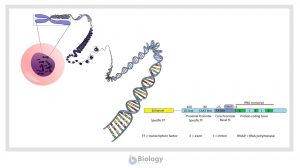Electronegative
(Science: chemistry, physics) Relating to or charged with negative electricity.
Normally refers to an element whose uncharged atoms have a tendency to ionise by adding electrons, thus becoming anions (e.g., oxygen, fluorine, chlorine).
It has the property of being attracted by an electropositive body, or a tendency to pass to the positive pole during electrolysis.
Dictionary > Electronegative
You will also like...

New Zealand’s Unique Flora
If New Zealand has lots of unique animals, it's also got a whole lot of unique plants. Find out more about some of them,..

Gene Regulation in Eukaryotes
Learn about the general structure of a eukaryotic gene, the transcription factors, and post-transcriptional regulation....

Freshwater Ecology
Freshwater ecology focuses on the relations of aquatic organisms to their freshwater habitats. There are two forms of co..

Ecosystem Succession
If the balance of nature is left untouched, landscapes can change dramatically over time. A previous ecosystem is supers..

The Hominids
The hominid family diversified from the apes around 6 to 8 million years ago. Since then, the evolutionary path has prov..

Seed Plants
Seed plants are vascular plants. They differ from the other vascular plants in producing seeds that germinate into a new..

